Shoma Uno held off a strong final group to retain his men’s singles title at the ISU World Figure Skating Championships, ending a week that saw Japanese skaters take gold in three out of four disciplines for the first time in history.
Winner of December’s Grand Prix Final in Turin as well as Japan’s national championship later that month, Uno delighted a nearly sold-out crowd at Saitama Super Arena with his free skate to “Air on the G String,” cleanly landing his quad loop and quad flip — and quartering two quad toeloops in the second half of his program — to earn 196.51 points, short of his season-best 204.47 but good enough to stay above South Korea’s Cha Jung-hwan with a combined score of 301.14.
“Today’s free program was far from perfect, but this is everything I can do at this moment,” Uno said. “I put everything out there, each jump was precarious.
“These past two weeks have been very tough because I was in bad shape, and I caused a lot of concern to everyone around me, but I was able to pay them back and show my gratitude with my performance today.”
Though Uno's coach Stephane Lambiel told reporters that he was already in the process of considering music for the 2023-24 season, the skater himself said that he'll evaluate his creative path forward during off-season ice shows, suggesting he felt his performances were was stagnating.
"More than results, I want to be able to look back at my performances and think they were good," said Uno, whose second world title brought him level with two-time Olympic champion Yuzuru Hanyu. "Over these last two years, if you ask if I've accomplished that, my jumps have really improved, but I don't think I've improved as a skater.
"I'm happy to get the results I wasn't getting until two years ago, but I feel like now I'm skating for the results. I'm not accomplishing interesting, fun skates like (former men's world champion) Daisuke Takahashi, and I think I can accomplish those at ice shows and use that to figure out how I want to skate going forward."
Cha’s nearly flawless program to “No Time To Die” helped him rise from third in the short program to second overall, and the 21-year-old can take heart in new free skate and combined personal bests.
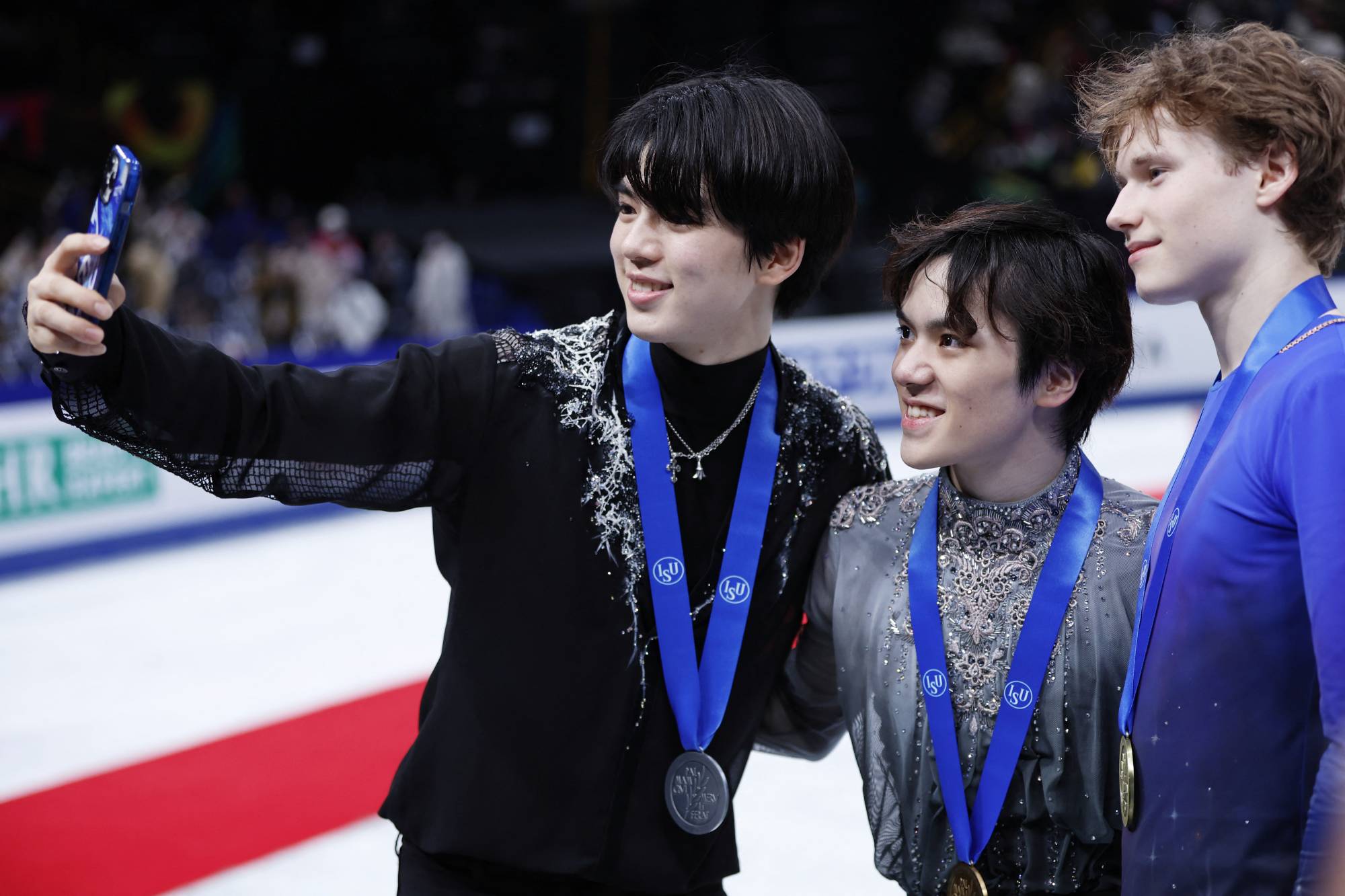
"I didn't think about results, I just tried to enjoy my skating and show what I trained (for)," he said. "My mindset was, even (if) I make mistakes, I'll give full effort and give everything to the audience and judges.
"I have less technical (ability) than Ilia (Malinin) or Shoma, but I'm always grateful that I can compete with them."
Rounding out the podium was U.S. champion Malinin, who lived up to his “QuadGod” nickname by becoming the first skater to land the fabled quad axel at the world championships just months after becoming the first to do so in competition.
Though the two quads that followed in his — a quad flip and a quad lutz — nearly turned into falls, the 18-year-old held on and proceeded to deliver a strong second half to his program set to “Euphoria.”
In total, Malinin cleanly landed three of six quads in his free skate, and earned his first bronze on the world stage after finishing ninth in his 2022 debut in Montpellier, France.
Afterward, he credited fans in Saitama for encouraging him to land the quad axel, but said he might reduce the overall number of quads next season to focus on his artistic elements.
"I think there's a lot more I need to work on," Malinin said. "To me, I usually like to push the boundaries, but I think for next season it'd be safer to develop that artistic side."
The final group featured fireworks from the outset, with American veteran Jason Brown (185.87) and France’s Kevin Aymoz (187.41) both setting personal bests in the long program. Skating his last competitive performance before retiring,
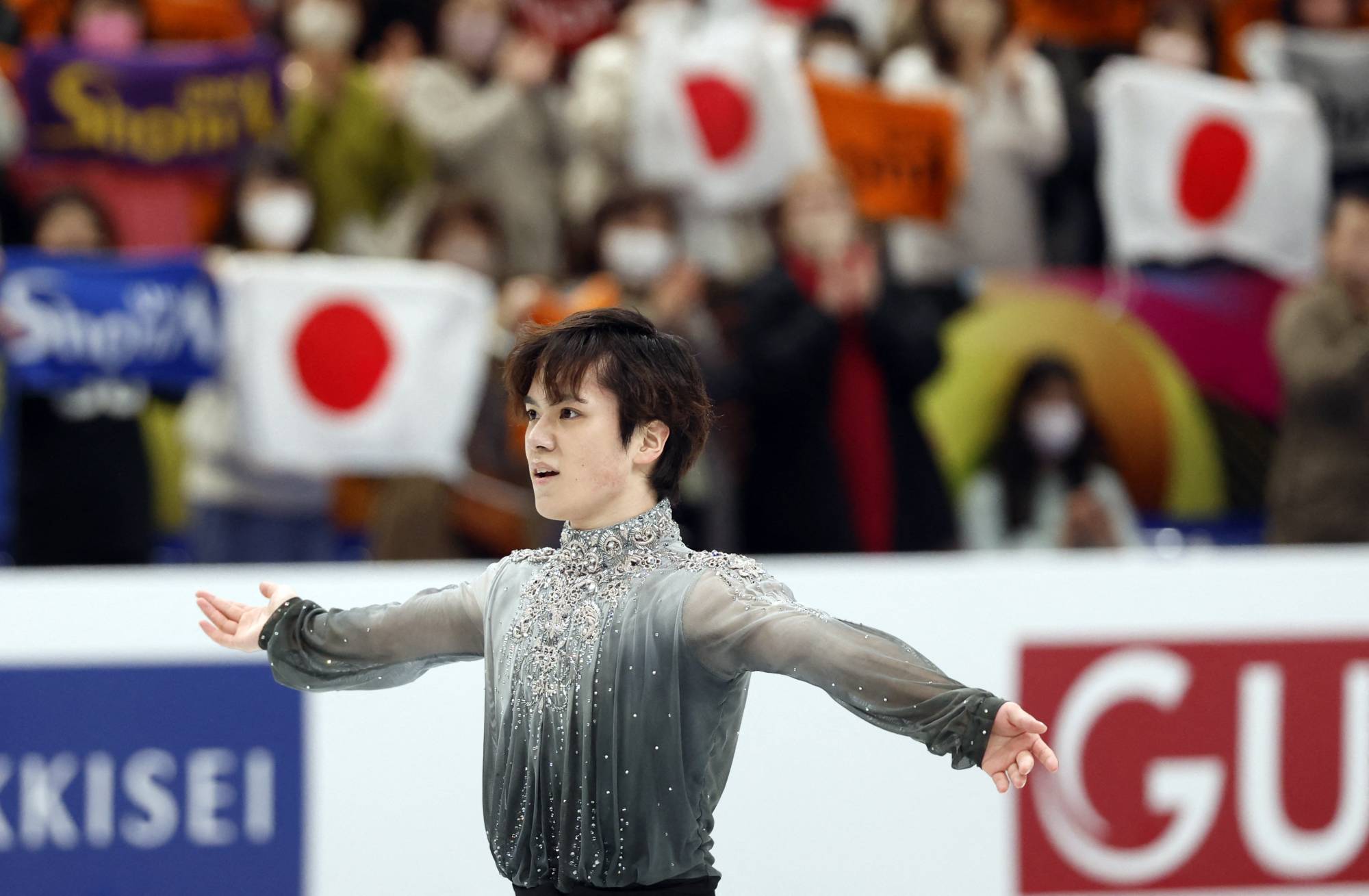
Canadian Keegan Messing had the crowd clapping from start to finish, but finished off the podium with a combined score of 265.16 after popping the start of his planned triple axel-Euler-triple salchow.
Among Japan’s other skaters, Kazuyuki Tomono set new personal bests in the free skate (180.73) and combined (273.41) to finish sixth, while Sota Yamamoto rose from 17th in the short program to 15th overall.
Earlier on Saturday, Americans Madison Chock and Evan Bates achieved their first ice dance world title in their 10th appearance at the event.
“It was exciting and stressful all at the same time,” Bates said. “The ice dance field is very competitive. We’ve competed against all these teams for several years, and we just wanted to focus on ourselves and skate our best, and highlight all the work we’ve put into these programs.”
The pair’s lone deduction came after Chock fell briefly between elements of their program to “Souffrance” and “Les Tectoniques,” but it was not enough to drag their final score — which represented personal bests in both the free skate and combined total — below that of second-place Charlene Guignard and Marco Fabbri of Italy.
Canadians Piper Gilles and Paul Poirier took bronze, matching their achievement at the 2021 world championships in Stockholm.
With tickets to the 16,000-capacity venue nearly sold out on the final day of competition, fans arrived earlier and provided an upbeat atmosphere throughout the free dance — though the home crowd reserved its loudest cheers for Kana Muramoto and former men’s singles world champion Daisuke Takahashi, who finished 11th overall on the strength of a strong “Phantom of the Opera” long program.



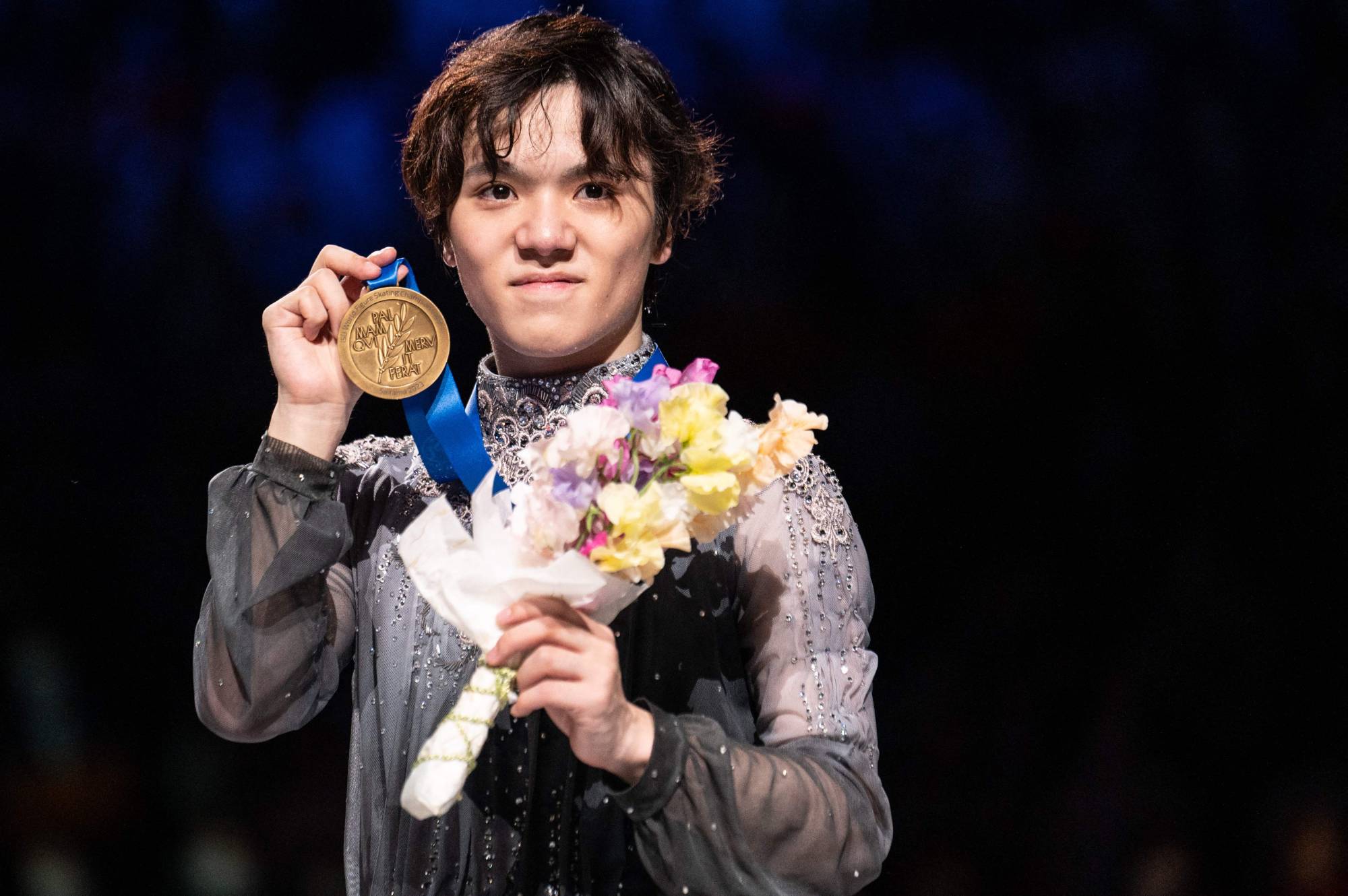

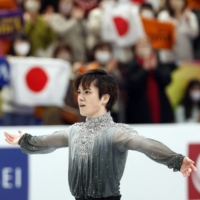
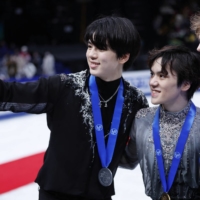













With your current subscription plan you can comment on stories. However, before writing your first comment, please create a display name in the Profile section of your subscriber account page.